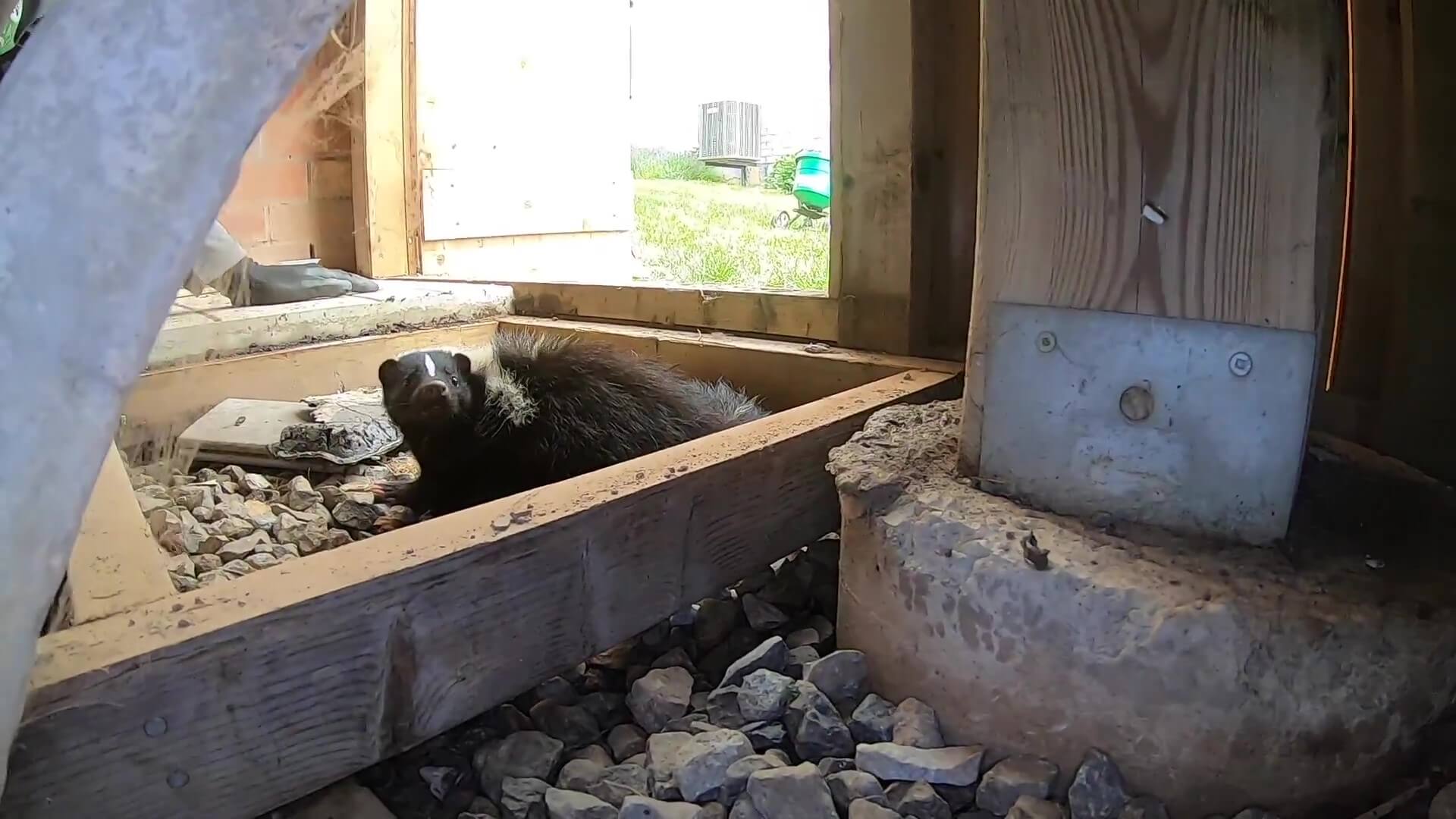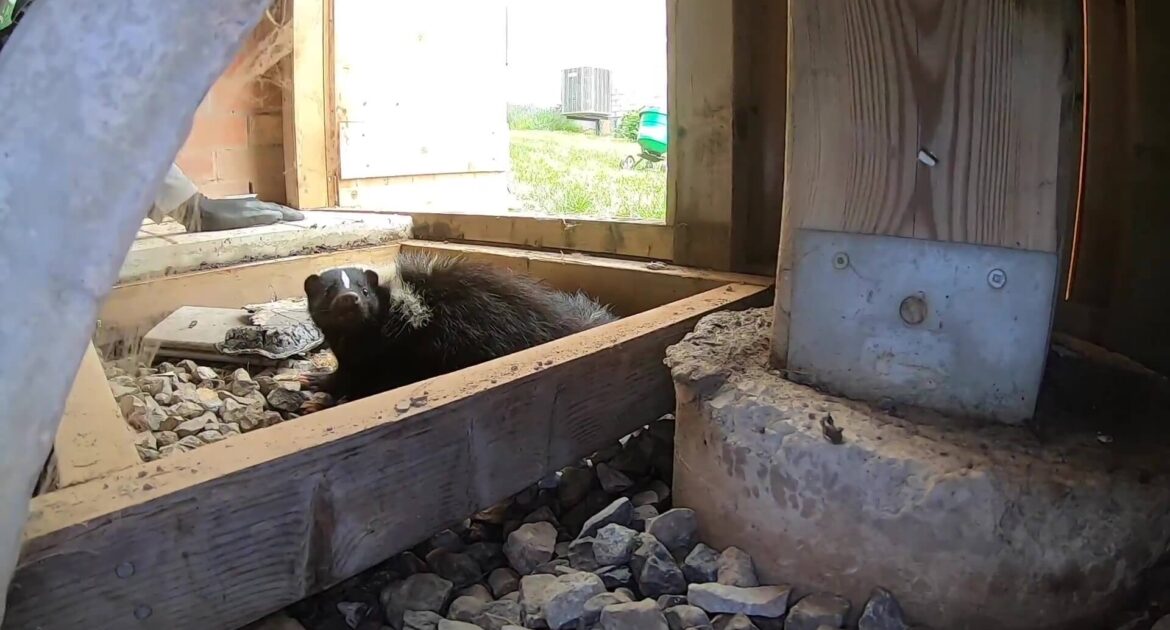Skunks are known for stinking up an area and anyone in it with their powerful defensive spray. Oily compounds called thiols, and thioacetates stick tight to clothing, skin, and fur. Besides their spray, skunks don’t cause too much damage, and they are only about as big as a housecat full grown. Skunks are also omnivores who are too small to eat animals even close to their size. Even though skunks aren’t super predators, they still strike fear into the hearts of farmers and anyone trying to run a chicken coop. Skunks are notorious for stealing chicken’s eggs from right out of the pen as a quick and easy snack that’s just the perfect size. Figure out ways to deter skunks from entering your coops and who to call for skunk removal in Whitby if your efforts still aren’t enough to keep the eggs safe.
What Do Skunks Normally Eat?
Skunks are your average small-sized omnivores, eating small prey to survive. They mainly survive on smaller high-protein foods like grubs and other insects, supplementing here and there with small prey when the opportunity presents itself. Skunks will also eat the flowers and foliage on which the insects and buds are perched in gardens and flowerbeds. Even though skunks take care of damaging bug populations, they are still not well-received because of their defence mechanism and their method of bug catching.
Why Would Skunks Target Eggs?
Skunks don’t necessarily target eggs. Skunks have notoriously poor eyesight, which is why they have those stink sprayers that cover a vast distance rather than more specific fighting skills. They use their heightened sense of smell to guide them to the next tasty and not too tricky to obtain a meal. Eggs are located in chicken coops which regularly have droppings and other waste; skunks can quickly find coops by smell alone. Eggs also don’t put up a fight, and they are a docile meal high in protein for the skunk to enjoy.
Do Skunks Eat Chickens Too?
Skunks have been known to eat a chicken, but they do not usually set out to do so. Chickens are large and have sharp talons and beaks. Skunks may have limited vision, but they still know that more leisurely meals are found, especially for an omnivore. More often, a chicken may be harmed or killed when protecting its eggs from a skunk.
Skunks will sneak in coops from underneath to steal eggs. They will poke their noses through the ends of the eggs and lick the contents out as an easy meal. However, the meal isn’t so easy when the chickens become agitated. To avoid injury, the skunk may have to inflict harm to get back out of the coop.
How Can I Deter Skunks?
Skunks are diggers, and they have an advanced sense of smell; use these two critical pieces of information when planning your offence against skunks. Make sure that fences are stabilized in the ground with wide posts that make it difficult to dig through. Some farmers swear by digging a trench and installing the chicken wire between posts before filling in and finishing the fences. Advice for backyard chicken coops states to soak rags in ammonia and leave them on the exterior of your coop each night; the pungent smell will both irritate and deter skunks from venturing further into the enclosures. Whether your coop is on a more significant acreage or just in your backyard, you can also deter skunks by regularly cleaning your cages, gathering eggs, and fortifying the underside of the structures.
Once you’ve attempted all the preventative measures and you still have skunks in the henhouse, it’s time to call in professionals. Rather than attempt to catch or remove the skunks on your own, hire professional skunk removal in Whitby to solve your problem. Skunks are small but can still be dangerous in addition to pungent. Remember, skunks regularly test positive for rabies. Contact Skedaddle Humane Wildlife Control today.




